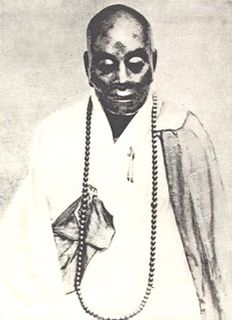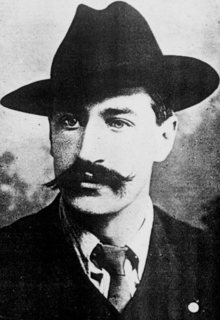A Quote by Huineng
By amending our mistakes, we get wisdom. By defending our faults, we betray an unsound mind.
Related Quotes
Before making peace, war is necessary, and that war must be made with our self. Our worst enemy is our self: our faults, our weaknesses, our limitations. And our mind is such a traitor! What does it? It covers our faults even from our own eyes, and points out to us the reason for all our difficulties: others! So it constantly deludes us, keeping us unaware of the real enemy, and pushes us towards those others to fight them, showing them to us as our enemies.
Diversity means, when the left teaches it, the people responsible for building America and maintaining it get the short end of the stick from now on. With this singular American culture that people came and wanted to be part of, they were proud, couldn't wait to become Americans, tears in their eyes when it happened. It was a special place. Defending it now, defending that America, defending our cultural, defending our founding, defending all of the things that made this country great is now called racism or xenophobia or hate.
We should forgive and forget the faults of others. Anger is the enemy of every spiritual aspirant. Anger causes loss of power through every pore of our body. In circumstances when the mind is tempted to get angry, we should control ourselves and resolve firmly, 'No.' We can go to a secluded spot and chant our mantra. The mind will become quiet by itself.
Forgiving ourselves for all the woulda-shoulda-couldas in life, and sometimes forgiving others for actions that we feel undercut or undermine our good, can be very challenging. But forgiveness of the past and mistakes, our own mistakes as well as the mistakes of others, is imperative if we are to dwell fully in the present and experience the miracles that are only available to the forgiving and loving mind.
The emotion of fear often works overtime. Even when there is no immediate threat, our body may remain tight and on guard, our mind narrowed to focus on what might go wrong. When this happens, fear is no longer functioning to secure our survival. We are caught in the trance of fear and our moment-to-moment experience becomes bound in reactivity. We spend our time and energy defending our life rather than living it fully.
Writing a diary every evening before going to bed is a good habit. We can record in the diary how much time we have devoted to our spiritual practice. The diary should be written in a way that helps us see our mistakes and correct them. It should not be a mere document of other peoples' faults or our daily transactions.































